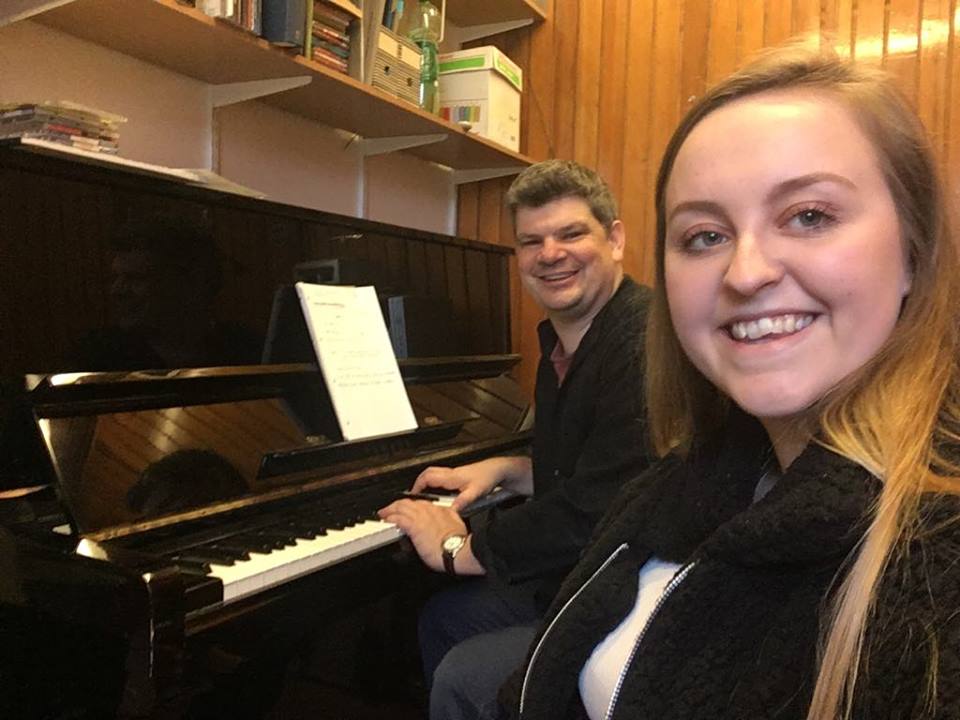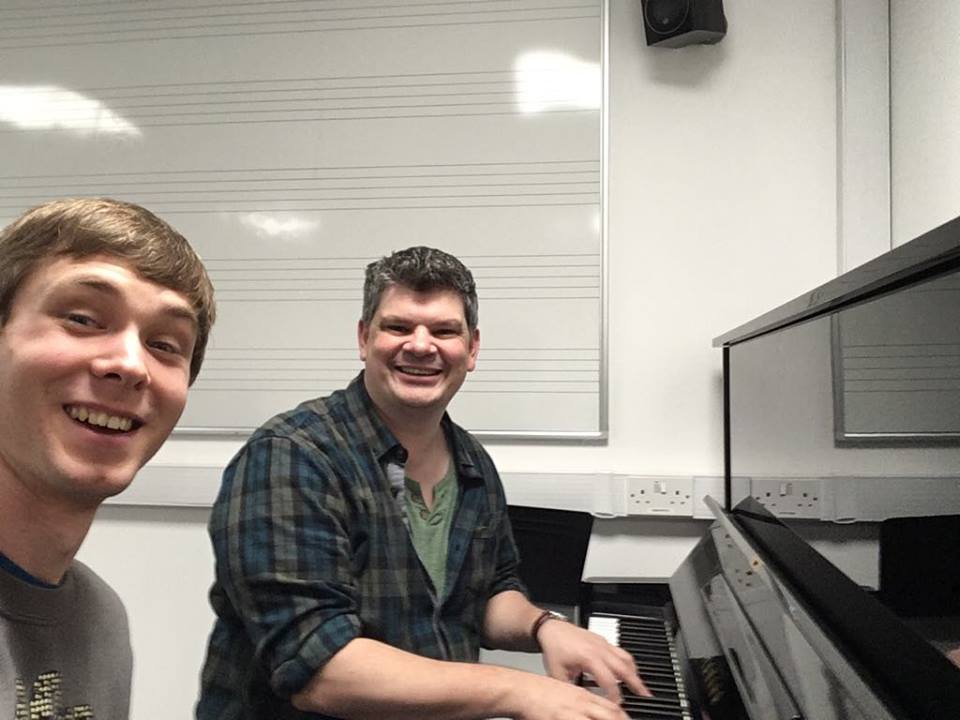Performing the Film of the Great War
 Yesterday marked the launch of Silent Film Fortnight, a three-part series focusing on the film heritage of the World War I as part of the university’s Great War, Unknown War programme. Third year students Emma Atkins and James Carter are performing for Dawn, the second film of the set:
Yesterday marked the launch of Silent Film Fortnight, a three-part series focusing on the film heritage of the World War I as part of the university’s Great War, Unknown War programme. Third year students Emma Atkins and James Carter are performing for Dawn, the second film of the set:
Emma:
On Tuesday 13 February at 7.30pm, silent film Dawn (1928) is screened at Turner Sims, accompanied by an ensemble led by composer and pianist Dr Andrew Fisher. Dawn follows the story of Edith Cavell (1865-1915) who was a British nurse. Edith became actively involved in helping British fugitives escape from Belgium during the First World War. She was eventually caught and sentenced to death.
I am enthusiastic about the opportunity to be singing as part of the ensemble. I have found the whole process incredibly enlightening. Having the chance to perform with industry professionals has been insightful and given me a better understanding of performance practice. It has also been very interesting to appreciate how a wide variety of music techniques have been used in order to accurately, but imaginatively, highlight particular parts of a scene. For instance; contrasts in texture and tonality to emphasise tension specifically in the final section of the film.
The most exciting element of taking part in this project has been learning new repertoire. I am a singer-songwriter, and so the opportunity to take part in performing beautiful songs from that period has been an eye-opening experience. During rehearsals, it was important to understand the process of knowing when each section of music would begin in response to the silent film. I can now adapt this skill for other projects.
I look forward to the performance and embarking on projects like these in the future.

James: The silent film project Dawn (1928) was a brilliant opportunity to perform in a unique setting. I found that getting the timing exactly right was an essential element in order to stay in sync with the film and this was refined in rehearsals with the film up in front of us as we played and sang. This allowed us to become familiar with not only our cues but with Andy’s brilliant music that provides perfect nuance to the screen images. Having the composer on hand to direct their work was novel to me and invaluable in bringing together such a monumental challenge. The immediate feedback helped me and the band improve quickly so that the rehearsals developed the materiel to a professional standard. There are several songs in the score with my cue being the famous war song It’s a Long Long Trail A’winding, which falls over the half-way mark in the third act of the film as Edith Cavell is preparing to be shot. Before this Emma sings the hymn Abide With Me as Cavell is visited by a priest. The brief moments of sung lyric create a heavy impact as the evening has been devoid of words till this moment.
This experience has greatly differed from previous projects I have been associated with, due in part to the unique presentation of live music conjoined with pre-recorded film, and in part to the gravity of this real-life tragedy.
The project has been a joy to be a part of and I hope the audience enjoy the experience.


